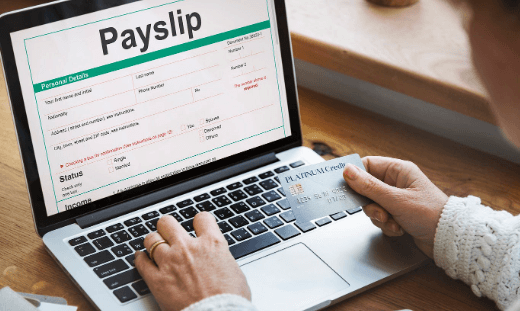Payslips: Understanding the Importance and How to Handle Them Effectively
Table of Contents
Introduction
Payslips are an essential aspect of every employee’s financial record-keeping process. In the UK, as in many other countries, payslips serve as crucial documents that provide information about an individual’s earnings, deductions, and taxes. Understanding the importance of payslips and knowing how to handle them effectively can significantly benefit both employers and employees. In this article, we will explore payslips in-depth and provide valuable insights to help you manage them efficiently.
The Significance of Payslips
Before we delve into the details of payslips, let’s take a moment to understand why these documents hold such importance.
What is a Payslip?
A payslip, also known as a wage slip, is a written document provided by an employer to employees at the end of each pay period. It contains detailed information about an individual’s earnings and any deductions made from their salary.
The Purpose of Payslips
Payslips serve multiple purposes for both employers and employees:
Proof of Income: Payslips act as official evidence of an employee’s income, which is often required for various financial transactions and official purposes.
Tax Compliance: Employees use payslips to verify their income when filing tax returns and ensuring accurate taxation.
Salary Verification: For lenders and financial institutions, payslips help verify an individual’s income when applying for loans or credit.
Employee Records: Payslips are essential for maintaining accurate records of employees’ wages, ensuring transparency and compliance with employment laws.
Wage Dispute Resolution: In case of any wage-related disputes, payslips provide a clear breakdown of earnings and deductions.
Managing Payslips Effectively
Now that we understand the significance of payslips, let’s explore some best practices for handling them efficiently.
1. Digital Payslips
With the advancement of technology, many employers now offer digital payslips. Opting for digital copies can reduce paper waste and provide easy access to past payslips through online portals or emails.
2. Secure Storage
Whether in physical or digital form, payslips contain sensitive financial information. Always store payslips securely and avoid sharing them with unauthorized individuals.
3. Regular Review
Employees should review their payslips regularly to ensure accuracy and identify any discrepancies. If any issues arise, promptly inform the HR or payroll department.
4. Organized Record-Keeping
Maintain an organized system for storing payslips and related financial documents. This practice will save time and effort when retrieving information for various purposes.
5. Keep Records for Statutory Periods
In the UK, employers are required to keep payroll records, including payslips, for a specific period. Employees should also retain their payslips for a reasonable duration for personal reference.
Common FAQs about Payslips
Here are some frequently asked questions about payslips:
Q: Can I receive both digital and physical payslips?
A: Yes, some employers offer the option of receiving both digital and physical payslips. Choose the format that suits you best.
Q: What if I find an error in my payslip?
A: If you notice any discrepancies or errors in your payslip, promptly notify your HR or payroll department for resolution.
Q: How long should I retain my payslips?
A: As per UK regulations, it’s advisable to keep your payslips for at least three years. However, you may choose to retain them longer for personal reference.
Q: Can I access past payslips online?
A: Many companies provide online portals where employees can access their past payslips. Check with your HR department for details.
Q: Are electronic payslips legally acceptable?
A: Yes, electronic payslips are legally acceptable in the UK, provided they meet specific requirements for security and accessibility.
Q: Can I request a copy of my payslip if I lose it?
A: Yes, if you lose your payslip, you can request a copy from your employer’s HR or payroll department.
Conclusion
Payslips play a vital role in the financial lives of employees, serving as official documentation of income and deductions. Understanding the significance of payslips and managing them effectively ensures smooth financial record-keeping and compliance with tax regulations.
By adopting best practices for payslip management and staying informed about your rights as an employee, you can make the most of these valuable documents. Remember always to keep your payslips secure and readily accessible when needed.
Now that you have a comprehensive understanding of payslips, you can navigate through financial matters confidently and make informed decisions.




